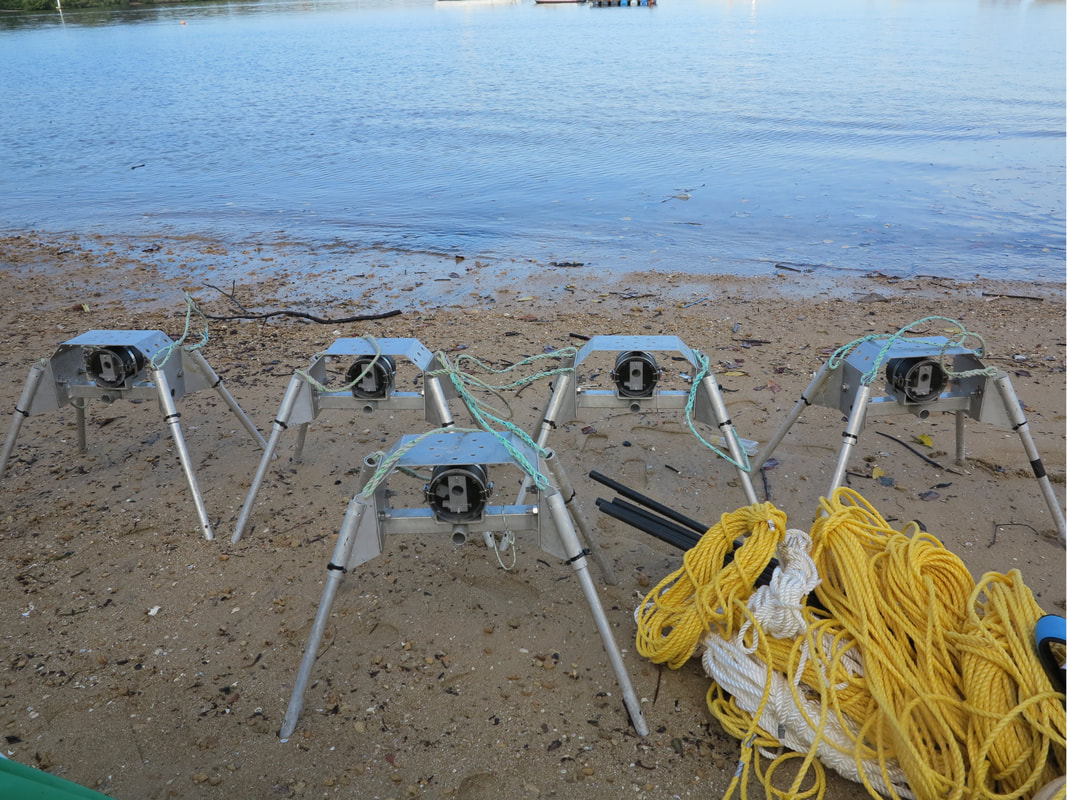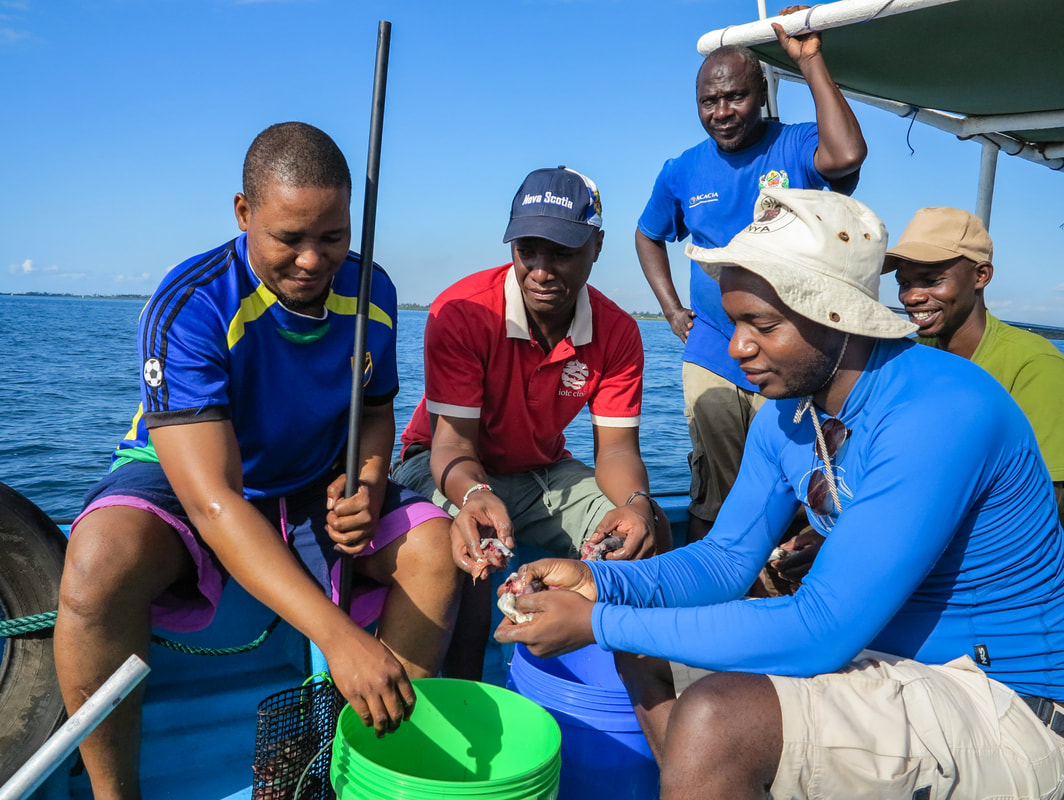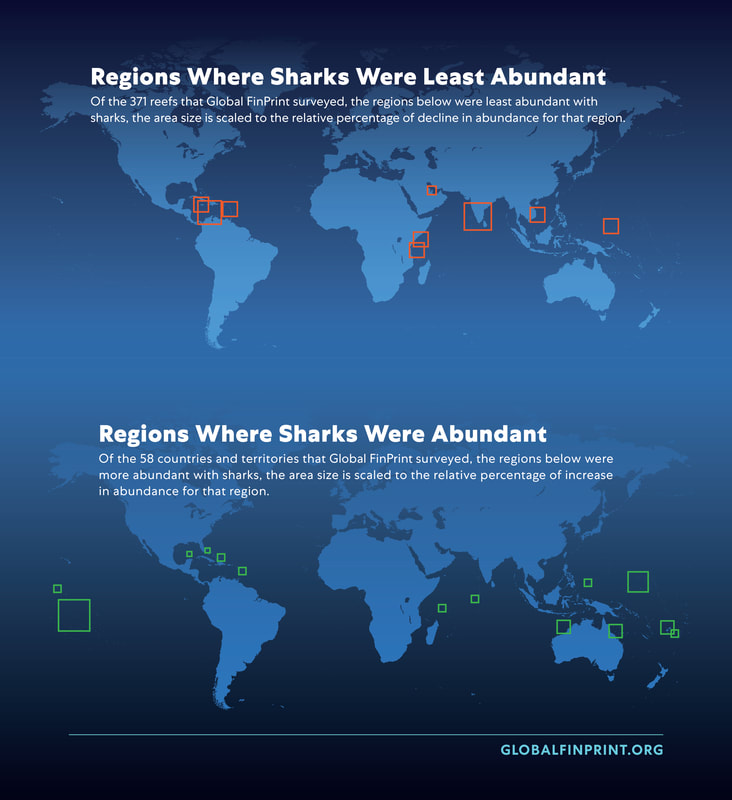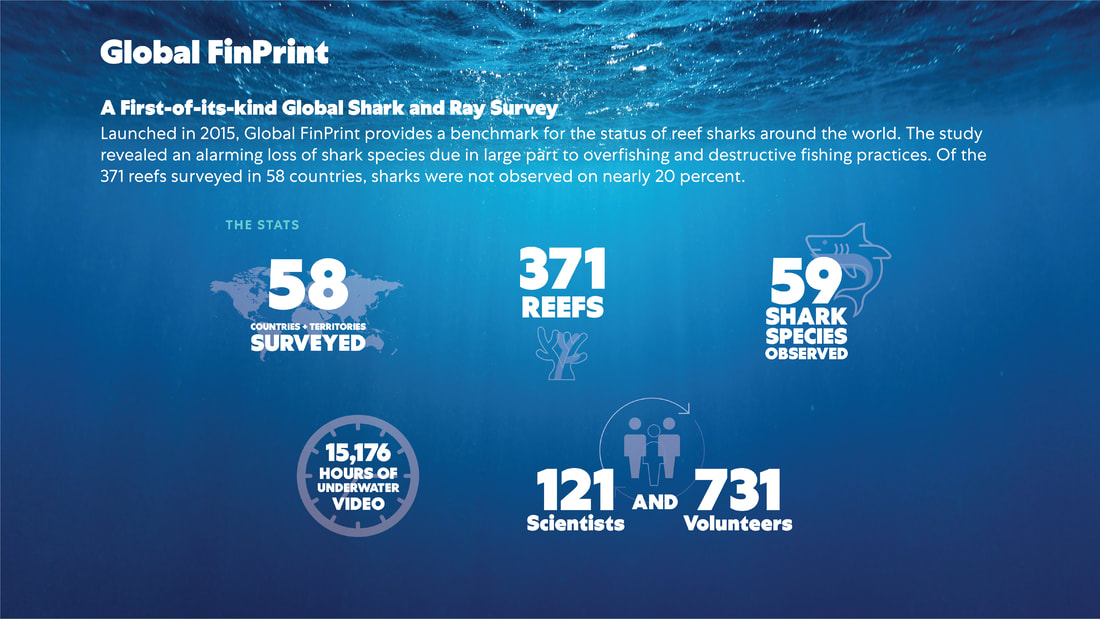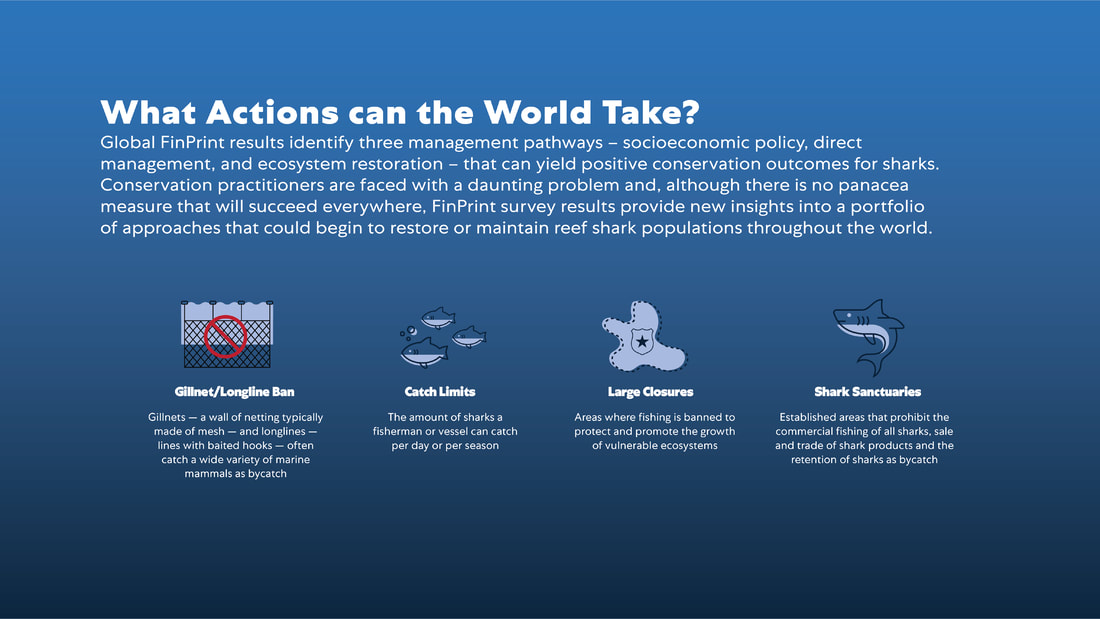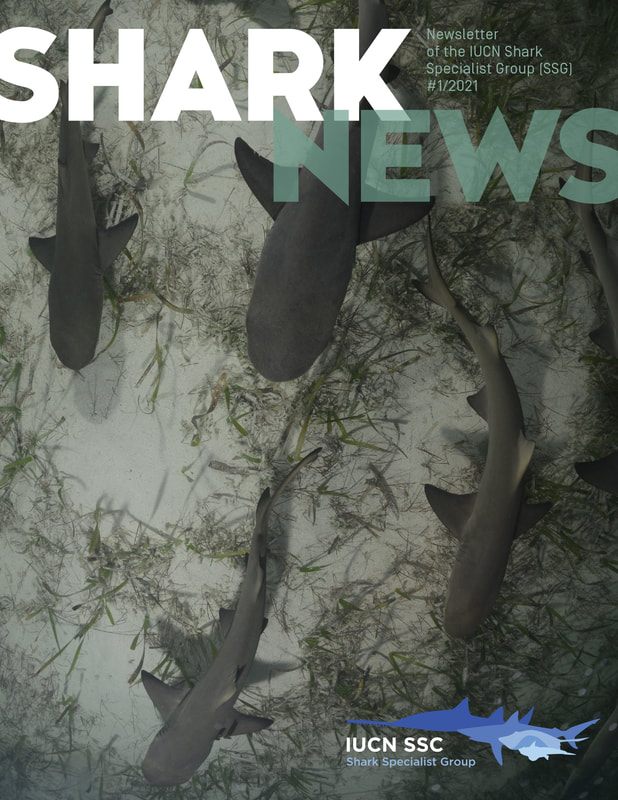|
A first global study published in Nature found reef sharks were absent on almost 20% of the 371 coral reefs sampled in 58 nations across the world. The study provides conclusive evidence of a severe decline in reef sharks on a global scale which is directly linked to fishing, but confirms protected areas and fishing gear restrictions are effective in maintaining healthy reef shark populations. The results were based on 15,165 hours of baited remote underwater video (BRUV) footage around the world. The severe depletion of reef sharks was particularly high in parts of the Western Indian Ocean (WIO) where 22.6% of BRUVs were expected to record sharks. Based on this regional expectation, some populations were found to be “functionally extinct”. For example, Kenya was ranked as one of the 11 “zero reef shark” countries in the world while only 8.1% of BRUVs in Tanzania recorded sharks. In contrast, Seychelles and South Africa populations had densities greater than regional average at 60.0% and 32.1%. Populations in Mozambique were moderately depleted with 18.2% of the BRUVs recording sharks. A similar case was found in Madagascar and Mayotte (France) where 17.9% and 17.3% respectively recorded sharks. It is notable however, that sampling in the WIO was very sparsely spread compared to other regions. The regional average number of shark species in the WIO was 7, comparable to those recorded in Madagascar. Mozambique and South Africa populations had the most species at 10 each, which was above the regional scores. Countries that recorded the least number of species than the regional scores included Seychelles (6), Mayotte (3), Tanzania (1) and Kenya (0). Coastal sharks comprise two thirds of species traded globally and their widespread decline, which had remained undocumented on a global scale, will have great socio-economic implications on communities directly dependent on them as important food resources or tourism attractions. In addition, the loss of reef sharks will have considerable ecological knock-on effects in these ecosystems because of their important role as top predators. Overfishing by longlines and gillnets was the main cause of loss of reef sharks. The study also revealed the decline to be strongly related to socio-economic conditions including the size and proximity to the nearest market, poor governance, and the density of the human population. Factors that promoted high numbers of sharks were good governance, remoteness and presence of directed shark fisheries management or shark sanctuaries1. There is a clear lack of established management schemes for reef sharks in most WIO countries, however positive effects of conservation were evident in Madagascar and Mayotte. These two nations showed increased benefits if they were to invest in shark fisheries management, large no-take Marine Protected Areas (MPAs), or become Shark Sanctuaries. No-take MPA was in place in these countries, and the study noted reef sharks were healthy in large and high compliance MPAs. Similar positive effects of management were seen in South Africa where both no-take MPAs and domestic shark regulations were present. Gear restrictions, specifically bans on gillnets and long lines in certain areas, are recommended. Indeed, the FinPrint study found these gear restrictions were associated with higher numbers of reef sharks, and in some cases were more effective than no-take MPAs. The benefits of no-take MPAs increase by twofold when their size is large (~20,000km2) to cover the home range of reef sharks. Overall, shark sanctuaries were found to be an effective conservation tool with the greatest benefits at national scale, and could be considered in the WIO. The good news is that restoration of reef shark populations is possible and can be achieved through dedicated conservation approaches and effective management measures provided key socio-economic aspects of reef shark fisheries are understood and incorporated. Economic policy measures to improve governance conditions are also essential in the restoration and management of reef sharks. In summary, the study provides a global benchmark for the status of reef sharks and specific guidance on the relative effectiveness of long-term conservation measures for their protection and recovery. The paper was lead by Aaron MacNeil with co-authors from Global FinPrint project (globalfinprint.org/findings/index.html#2) and over 100 other co-authors who participated, including 3 CORDIO staff members. MacNeil et al. 2020. Global status and conservation potential of reef sharks. Nature, pp.1-6. Available at nature.com/articles/s41586-020-2519-y
Comments are closed.
|
Archives
May 2024
Categories
All
|

